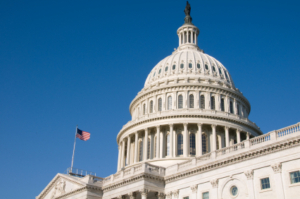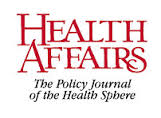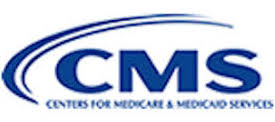SNAP Thanks PA Delegation for Supporting Short-Term Medicaid DSH Cut Delay
SNAP has written to members of Pennsylvania’s congressional delegation to thank them for voting for a temporary delay of Medicaid disproportionate share (Medicaid DSH) cuts mandated by the Affordable Care Act.
 The Medicaid DSH delay was included in a continuing resolution that Congress passed to fund the federal government temporarily while legislators continue to negotiate an FY 2020 federal budget. The continuing resolution and the Medicaid DSH cut delay run through November 21.
The Medicaid DSH delay was included in a continuing resolution that Congress passed to fund the federal government temporarily while legislators continue to negotiate an FY 2020 federal budget. The continuing resolution and the Medicaid DSH cut delay run through November 21.
Medicaid DSH cuts mandated by the Affordable Care Act have already been delayed several times by Congress, but if not delayed again, Pennsylvania will see its federal Medicaid DSH allotment fall 40 percent in FY 2020 and 80 percent a year from FY 2021 through FY 2025.
See SNAP’s thank you note to Pennsylvania’s congressional delegation here.
 Cuts in Medicaid disproportionate share hospital (Medicaid DSH) allotments to states were mandated by the Affordable Care Act based on the expectation that the law would greatly reduced the number of uninsured Americans. While this has been the case, the decline in the number of uninsured has not been as great as expected. For this reason, Congress has on several occasions delayed the required Medicaid DSH cut.
Cuts in Medicaid disproportionate share hospital (Medicaid DSH) allotments to states were mandated by the Affordable Care Act based on the expectation that the law would greatly reduced the number of uninsured Americans. While this has been the case, the decline in the number of uninsured has not been as great as expected. For this reason, Congress has on several occasions delayed the required Medicaid DSH cut. The new Department of Homeland Security regulation, while focused on applicants for entry into the U.S., could have the unintended effect of discouraging legal immigrants from enrolling in Medicaid, CHIP, and other government programs and even lead them to disenroll from such programs out of a mistaken concern that participating in such programs could jeopardize their status as legal immigrants. The Kaiser Family Foundation, in fact, estimates that two to three million people will leave Medicaid and CHIP because of the new regulation.
The new Department of Homeland Security regulation, while focused on applicants for entry into the U.S., could have the unintended effect of discouraging legal immigrants from enrolling in Medicaid, CHIP, and other government programs and even lead them to disenroll from such programs out of a mistaken concern that participating in such programs could jeopardize their status as legal immigrants. The Kaiser Family Foundation, in fact, estimates that two to three million people will leave Medicaid and CHIP because of the new regulation. The new requirements apply both to Medicaid fee for service and managed care programs and all of these steps must be completed by the end of calendar year 2019.
The new requirements apply both to Medicaid fee for service and managed care programs and all of these steps must be completed by the end of calendar year 2019. According to a legislative summary prepared by one of the bipartisan bill’s sponsors,
According to a legislative summary prepared by one of the bipartisan bill’s sponsors, In 2015, CMS required states to track their Medicaid fee-for-service payments and submit them to the federal government as part of a process to ensure that Medicaid payments were sufficient to ensure access to care for eligible individuals. Now, CMS proposes rescinding this requirement, writing in a news release that
In 2015, CMS required states to track their Medicaid fee-for-service payments and submit them to the federal government as part of a process to ensure that Medicaid payments were sufficient to ensure access to care for eligible individuals. Now, CMS proposes rescinding this requirement, writing in a news release that The Medicaid DSH cuts, mandated by the Affordable Care Act, have already been delayed three times by Congress and could be on their way to a fourth delay if the proposal advanced by the Health Subcommittee is endorsed by the Energy and Commerce Committee and works its way to the full House of Representatives, where such a proposal is thought to enjoy wide support.
The Medicaid DSH cuts, mandated by the Affordable Care Act, have already been delayed three times by Congress and could be on their way to a fourth delay if the proposal advanced by the Health Subcommittee is endorsed by the Energy and Commerce Committee and works its way to the full House of Representatives, where such a proposal is thought to enjoy wide support. According to the post, social determinants of health – income, education, decent housing, access to food, and more – significantly influence the health and well-being of individuals – including low-income individuals who have adequate access to quality health care. Medicaid, the post maintains, can play a major role in addressing social determinants of health.
According to the post, social determinants of health – income, education, decent housing, access to food, and more – significantly influence the health and well-being of individuals – including low-income individuals who have adequate access to quality health care. Medicaid, the post maintains, can play a major role in addressing social determinants of health. Initiatives to be introduced in the coming months include (as described in the blog post):
Initiatives to be introduced in the coming months include (as described in the blog post): The requirement itself is not new; the purpose of the memorandum is to encourage federal agencies to enforce existing laws that state that, according to the memorandum,
The requirement itself is not new; the purpose of the memorandum is to encourage federal agencies to enforce existing laws that state that, according to the memorandum,